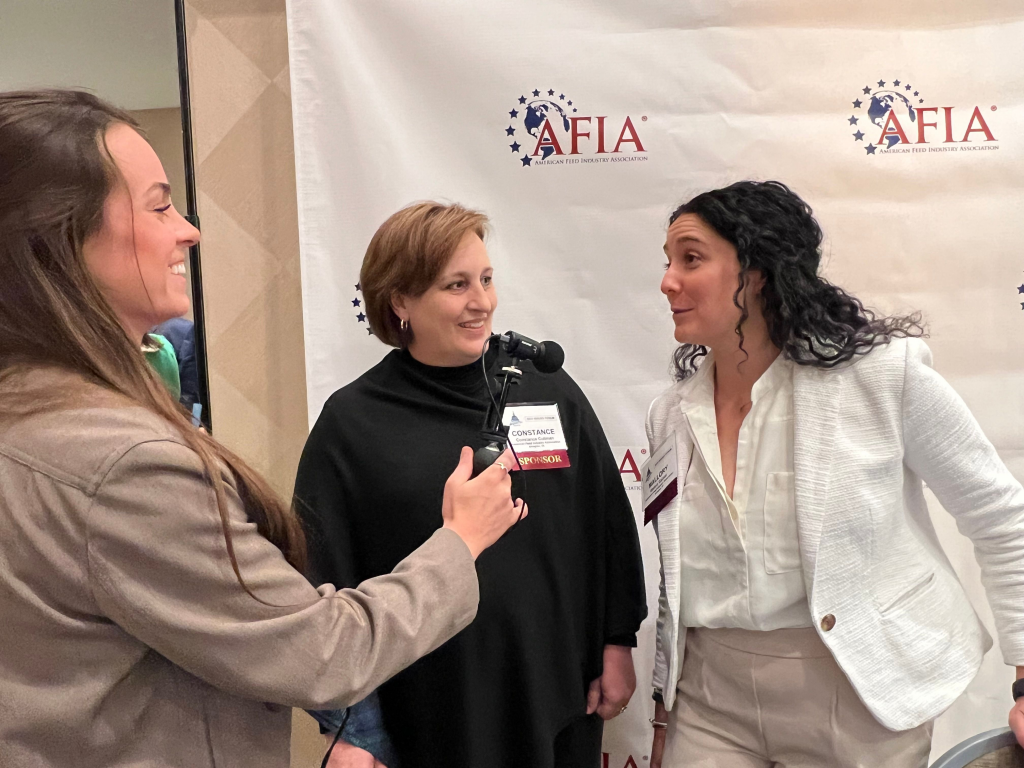
While in Washington, D.C., Associate Farm Editor, Reagan Calk, talked with Mallory Gaines and Constance Cullman of the American Feed Industry Association about the 16-4 veterinary services form.
As the Director of Market Access and Trade Policy, Gaines was able to give an update on the 16-4 veterinary services form, and how changes to this form will impact the animal agriculture industry going forward.
“If you have any animal-based products or pet food, you predominantly use this form to export, and it is important for farmers and ranchers as well because those are all part of the animal food supply chain,” Gaines said.
Parts of slaughtered livestock that are not used in the supply chain, Gaines said, ultimately become animal biproducts to export.
“On this form, APHIS (Animal & Plant Health Inspection Service) had these disease statements on the letterhead of the form,” Gaines said. “They were diseases like foot and mouth disease, African swine fever, classical swine fever- things that thankfully we do not have in the United States. But, if we were to get one of those foreign animal diseases, all of a sudden, that entire form becomes invalid.”
After working with APHIS and the U.S. Department of Ag, Gaines said the disease statements have been moved from the letterhead of the form into the additional declarations section.
“What that means is, if we were to get one of those terrible foreign animal diseases in real-time, they can scratch that disease out, they can edit the form quickly without having to go through the arduous office of management and budget process, which is what they would have had to originally done, adding months and months of time to changing and updating that form,” Gaines said.
President and CEO of AFIA, Constance Cullman, added that now APHIS can remove any diseases that are not applicable to the animal product being exported.
“For instance, if you are exporting a poultry product, but we do have African swine fever here, I hope not, but if we do have African swine fever here and you are exploring a poultry product, you can still do that,” Cullman said.
Before, Cullman said, if there was a case of African swine fever, even a poultry product would not have been able to be exported.
“The loose string right now is there still a standard form, so right now it is still every disease declaration for every commodity,” Gaines said. “We are now working with APHIS to go species by species, product by product, disease by disease, to make sure if you are exporting a poultry product, you don’t even have a swine disease on the form.”
The end goal, Gaines said, is to be able to create a form that fits each species, rather than a form with diseases that are not applicable to every species.















